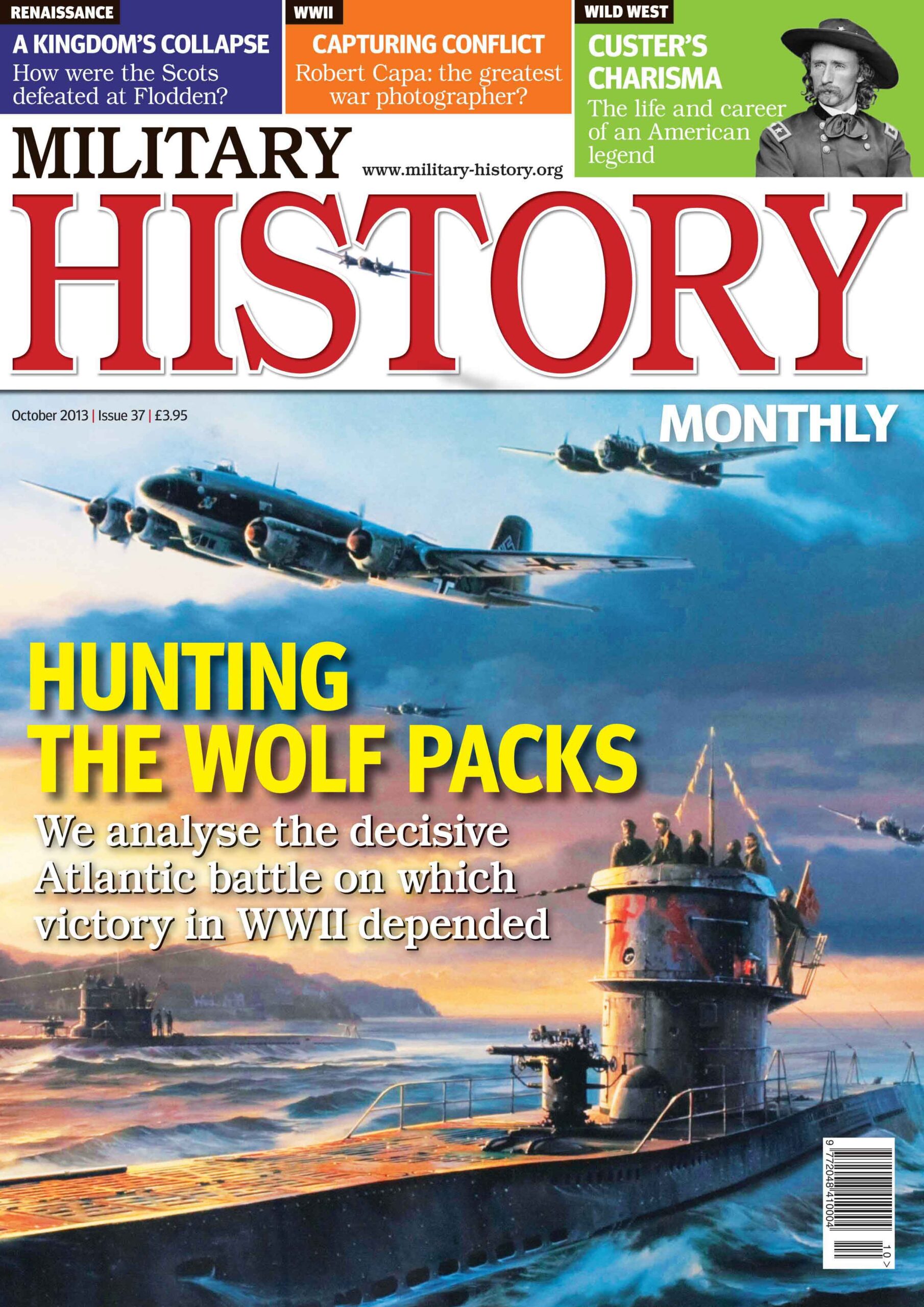The October issue of Military History Monthly, the British military history magazine, is on sale today.
In the latest issue we cover:
Grand Strategy 1943: The Battle of the Atlantic
Neil Faulkner continues his mini-series on British grand strategy with an analysis of the struggle for maritime supremacy in the Atlantic.
The Black Prince At Poitiers
Author Peter Hoskins studies the little-known but brilliant campaign of the Black Prince in 1356.
Tripoli Trappola: What really happened?
Julian Spilsbury concludes his two-part account of the Italo-Turkish War of 1911-1912.
Becoming Custer: A product of the American Frontier
Robert Bateman assesses the career of the legendary George Armstrong Custer, and its culmination in one of America’s most famous disasters.
Flodden: Scotland’s greatest defeat
Ross Cowan marks the anniversary of Scotland’s most terrible battle, the day the King of Scots was hacked down, and the flower of the Kingdom’s nobility died.
Also in this issue:
War on Film; Back to the Drawing Board; Museum Review; Behind the Image; Book Reviews; Event Listings; and much more.
From the editor
Neil Faulkner, Editor/n
Is wartime grand strategy rational? Or is it the outcome of power struggles between rival vested interests? Probably a bit of both, and British grand strategy 70 years ago seems evidence of that.
Last month, we had a critical piece on the Bomber Offensive (and our Opinion piece this issue comes from one of our own Editorial Advisory Board, Squadron Leader Colin Pomeroy, who firmly takes issue with us).
We now look at the Battle of the Atlantic. The argument is that this was very close-run and absolutely decisive. Had D√∂nitz’s U-boats closed the sea-lanes around Britain, the Nazis would have won the war. That they came so close was partly because of the diversion of air-power into the Bomber Offensive.
Why were the priorities so skewed? Because whereas Coastal Command was part of an inter-service response to the U-boat threat, Bomber Command was fighting its own war and thereby vindicating the RAF’s claim to independent and equal status
with the other services.
The politicians and the joint high command should have established proper priorities. They did not. Politics was again the reason. Churchill and his commanders needed cover against the fact they were fighting in the Far East and the Middle East instead of opening a Second Front in north-west Europe. The Bomber Offensive -striking directly at Germany -was their answer to Stalin.
Also this issue, Ross Cowan re-analyses the slaughter of the Scottish aristocracy at Flodden 500 years ago, Robert Bateman explores Custer’s career before the Little Big Horn, Peter Hoskins reconstructs the Black Prince’s victorious Poitiers campaign, and Julian Spilsbury concludes his two-part account of the Italo-Turkish War in Libya, part of our new Road to War series.

